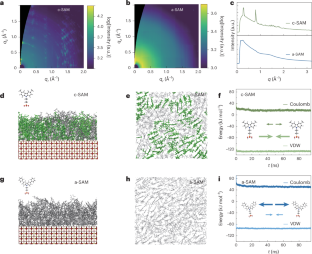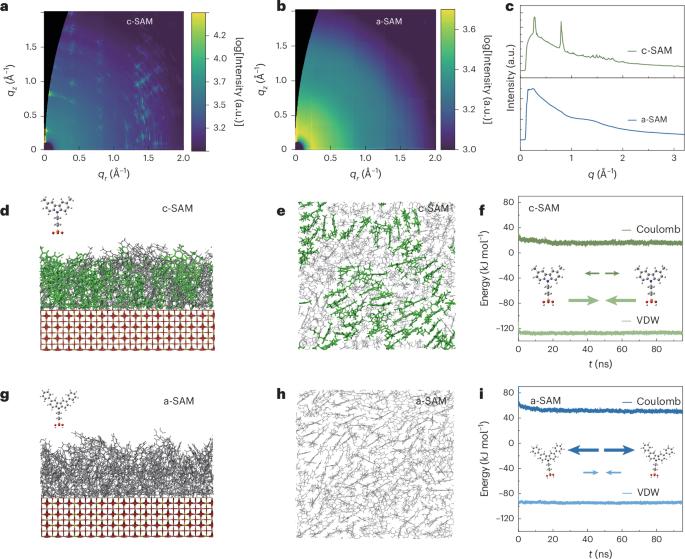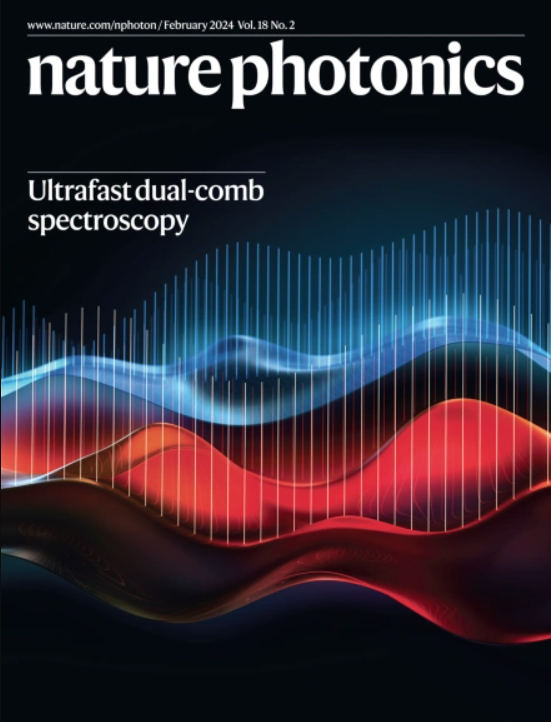Regulating phase homogeneity by self-assembled molecules for enhanced efficiency and stability of inverted perovskite solar cells
IF 32.3
1区 物理与天体物理
Q1 OPTICS
引用次数: 0
Abstract
Heterogeneity in transporting interfaces and perovskites poses a substantial challenge in improving the efficiency of perovskite solar cells from small to large scales, a key barrier to their commercial use. Here we find that the amorphous phases of self-assembling molecules (SAMs) can realize a more homogeneous perovskite growth. Hyperspectral analysis confirms a narrower and blueshifted photoluminescence peak distribution in perovskite/amorphous SAMs. Additionally, fluence-dependent time-resolved photoluminescence reveals a reduced trap-assisted recombination rate of 0.5 × 106 s−1 in amorphous-SAM-based perovskite films. This improvement translates to p–i–n structured perovskite solar cells achieving an efficiency of 25.20% (certified at 24.35%) over a one-square-centimetre area. These cells maintain nearly 100% efficiency after 600 h of 1-sun maximum power point tracking under the ISOS-L-1 protocol, and retain 90% of their initial efficiency after 1,000 h, as evaluated by the ISOS-T-2 protocol. Amorphous phases of self-assembling molecules employed as a hole-transporting layer in inverted perovskite solar cells contribute to homogeneous perovskite film growth, resulting in a power conversion efficiency of 25.20% (certified 24.35%) for one-square-centimetre area cells.


通过自组装分子调节相均匀性,提高反相包晶石太阳能电池的效率和稳定性
传输界面和过氧化物的异质性是提高过氧化物太阳能电池从小尺度到大尺度效率的巨大挑战,也是其商业应用的关键障碍。在这里,我们发现自组装分子(SAMs)的非晶相可以实现更均匀的包晶生长。高光谱分析证实,包晶/非晶态 SAM 中的光致发光峰分布更窄、更蓝。此外,随通量变化的时间分辨光致发光显示,在非晶-SAM 型透辉石薄膜中,陷阱辅助重组率降低了 0.5 × 106 s-1。这一改进使 pi-n 结构的包晶体太阳能电池在一平方厘米的面积上实现了 25.20% 的效率(认证效率为 24.35%)。根据 ISOS-L-1 协议,这些电池在 1 太阳最大功率点跟踪 600 小时后仍能保持近 100% 的效率,而根据 ISOS-T-2 协议评估,在 1,000 小时后仍能保持 90% 的初始效率。
本文章由计算机程序翻译,如有差异,请以英文原文为准。
求助全文
约1分钟内获得全文
求助全文
来源期刊

Nature Photonics
物理-光学
CiteScore
54.20
自引率
1.70%
发文量
158
审稿时长
12 months
期刊介绍:
Nature Photonics is a monthly journal dedicated to the scientific study and application of light, known as Photonics. It publishes top-quality, peer-reviewed research across all areas of light generation, manipulation, and detection.
The journal encompasses research into the fundamental properties of light and its interactions with matter, as well as the latest developments in optoelectronic devices and emerging photonics applications. Topics covered include lasers, LEDs, imaging, detectors, optoelectronic devices, quantum optics, biophotonics, optical data storage, spectroscopy, fiber optics, solar energy, displays, terahertz technology, nonlinear optics, plasmonics, nanophotonics, and X-rays.
In addition to research papers and review articles summarizing scientific findings in optoelectronics, Nature Photonics also features News and Views pieces and research highlights. It uniquely includes articles on the business aspects of the industry, such as technology commercialization and market analysis, offering a comprehensive perspective on the field.
 求助内容:
求助内容: 应助结果提醒方式:
应助结果提醒方式:


